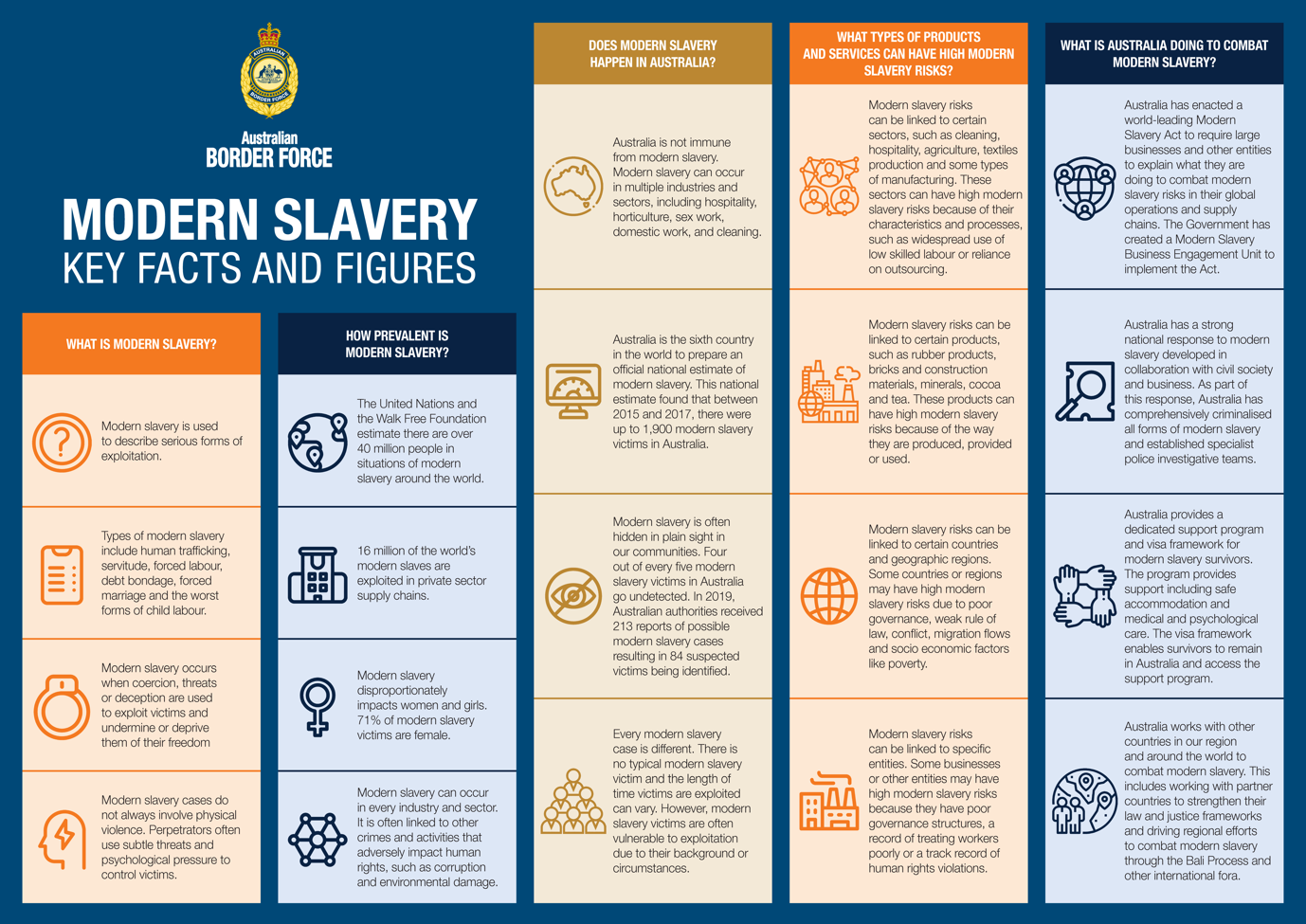Australia’s Modern Slavery Act (Cth) passed in December 2018 requiring all organisations with an annual turnover of A$100 million to publish an annual statement assessing and addressing modern slavery risks in their operations and supply chains. For organisations operating on the Australian financial year, the first statement is due 31 March, 2021.
With little time left and an estimated 76% of statements still outstanding, many entities will miss this first reporting deadline. However, there is still time to get it right, even for organisations only recently aware of this requirement.
Voluntary assessments
While not quite as rushed, many other smaller organisations are working out a response to modern slavery, even though they fall below the Act’s revenue threshold. One way is through voluntary submissions which are often done to mitigate risk, increase supply chain transparency, get ahead of consumer demands, or simply to contribute to the identification and eradication of slavery.
Another common response by small-to-medium sized organisations is to conduct an assessment, enact targeted changes, and prepare a counter-slavery policy in response to inquiries from larger companies. In this way modern slavery compliance is being cascaded across supply chains in the form of questionnaires, contract requirements, and requests for slavery statements and policies.

Reporting to date
Our Ndevr Human Rights team at analysed the most recent data provided through the Government’s Modern Slavery Online Register and as of 28 Jan 2021 only some 24% of the expected 3000 reporting entities have submitted a Slavery Statement.
Based on these numbers and our qualitative market assessment, we understand that many entities remain simply unaware of their reporting obligations.
While the Act does not carry financial penalties for non-compliance, it does include a “name and shame” clause, and the media and NGOs may highlight who has not complied which will create a material risk for those organisations.
Ndevr Environmental has also learned that as many as 33% of submitted statements are being sent back by Border Force for revisions. Nearly all of those returned were caused by a failure to meet the Act’s reporting criteria, specifically around correctly signing-off the statement and showing it went through the correct consultation process – both easily avoidable issues.



